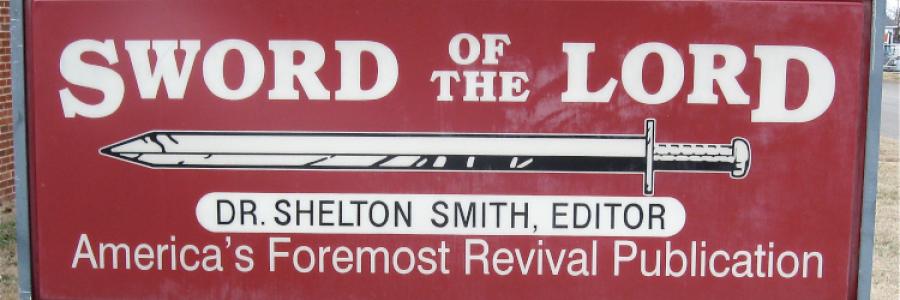[amazon 1453843752 thumbnail]
For over 75 years, a small, independent newspaper has been the face of fundamentalism in America. John R. Rice founded The Sword of the Lord in 1934 and continued to manage the paper until his death in 1980. After Rice’s death the fundamentalist movement fragmented and the paper has lessened in influence, although it still represents an old-fashioned, fundamentalist faith.
In a new book released this week, one of John R. Rice’s grandsons, Andrew Himes, takes up his pen to tell the story of fundamentalism from an insider’s perspective. Himes grew up within a leading fundamentalist family in the hey day of American fundamentalism. His book [amazon 1453843752] includes personal encounters with several big names widely known even outside of fundamentalism. Himes tells a story his mom related of Billy Graham moving a piano in their home when he was a sophomore at Wheaton College. On the occasion of John R. Rice’s death, Himes himself attended the funeral and ate a meal afterward with Jerry Falwell, then just embarking on his dream of establishing the Moral Majority, soon to be known as the Religious Right.
Himes traces the roots of the Rice family back to the Revolutionary War and interweaves personal accounts of his ancestors’ lives with an account of the historical background of fundamentalism. He explores the sociological elements of the Scots-Irish people and the Southern mindset during and after the Civil War. His family ended up in Texas, where the Civil War lived on as the great lost cause. Himes also details the beginnings of American evangelicalism and the influence of the 18th century revivals on fundamentalism.
The book is more intriguing when John R. Rice comes on the scene and we hear of his mentor, J. Frank Norris. When William Jennings Bryan died suddenly after the conclusion of the Scopes trial, J. Frank Norris picked up the mantle of the leadership of the fundamentalist movement. Norris’ fights with the Southern Baptist Convention eventually included his young protege, who followed Norris out of the SBC. Himes traces the career of John R. Rice from his early days of evangelistic crusades in various towns in Texas to his national prominence as a leader in fundamentalism and even a member of the National Association of Evangelicals. Rice’s early days included numerous revival crusades in small towns throughout the South. It seems he often built a tabernacle for the meetings, and a few months later would leave behind a new Fundamentalist Baptist Church (they always had the same name), unaffiliated with any convention. Rice eventually took to radio and various newspapers to help expand his reach. He moved to Wheaton soon after he broke with Norris (who seemed to grow jealous of John R. Rice’s influence). Rice then became a mentor for Billy Graham, and the tale of Rice’s painful parting with Graham is told from Rice’s vantage point. We then learn of Rice’s conflict with Bob Jones in the 1970s.


Discussion